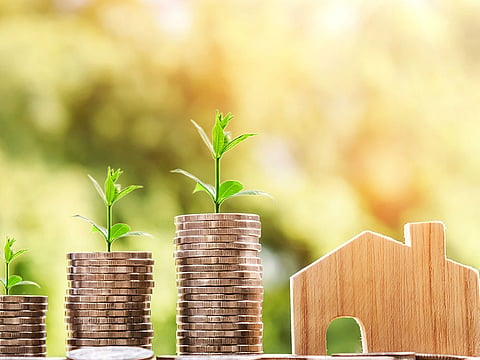That sizeable down payment can help in many ways
A better lending rate on the rest is but one benefit that can come with it

When buying a home, the down payment is probably one big factor. And paying as little as possible is tempting. That is totally valid if you don’t have the money to pay a larger down payment. But do consider the benefits of putting more down.
With interest rates on the rise, paying a larger down payment could help get a relatively lower rate, which could help save thousands of dirhams over the life of the loan. A larger down payment also can give more flexibility with the financial planning. Here is why.
Lower rates
Lenders take many factors into consideration when they are deciding which annual percentage rate (APR) they offer a borrower. While the down payment is not the only factor, putting down more money reduces the lender’s risk, which translates almost always into receiving a lower rate. Ask the bank or loan officer if paying 30 per cent instead of 20 per cent would reduce the rate.
With most mortgages financed over a 30-year period, even an eighth of a percentage point could make a big difference over the life of the loan. Weigh these savings against the fact that you will put this money down now and won’t have it for other investments or savings.
Lower monthly payment
If financing a smaller amount of money at a lower rate, the monthly payment will be lower and more manageable, which provides one with peace of mind in case of job loss or any other financial difficulty that the house is not at risk.
A smaller monthly payment also reduces the overall debt-to-income, so you will be better positioned to borrow money if needed to finance a business or another property. But keep in mind that mortgage rates are typically lower than on consumer and business loans, so if you foresee the need to buy a car or finance a business, run the numbers to see if putting the cash into a down payment at the higher rate loan could save money in the short term.
Building equity
Another big benefit of putting more money down on a house is to build up equity quicker. In any mortgage payment schedule and breakdown, much of the early payments could be going toward the mortgage interest rather than the principal, which means you won’t be building significant equity until years have passed, especially if the property’s value is not rising fast enough.
When paying a larger down payment and financing a smaller amount, the equity will be the down payment and the amount paid toward the principal coupled with any market appreciation. Why is equity important?
For two reasons: If there is a need to sell the house shortly after buying it, you should be able to break even at least, because the acquired equity would pay for any costs and commissions. And you would walk out with pretty much what was put down — assuming you sell the house at the same price or higher.
The second reason is that equity in the house can be tapped. The money put down plus the acquired equity can be borrowed back if needed down the road — typically at a much lower rate than any consumer loan. So with a larger down payment, it can help get all the benefits and still be accessed if needed.
Better offer
In a competitive market, a larger down payment can help you stand out. Although it does not really make a difference to a seller where the money is coming from, it could be reassuring to know that with your larger down payment, the mortgage application is more likely to be approved.
More lenders may be willing to work with you if paying a larger down payment, which gives better options in terms of picking and choosing rates, service and convenience.
Rania Oteify, a former Gulf News Business Features Editor, is a Seattle-based editor.
Why make a bigger downpayment on a home
Sign up for the Daily Briefing
Get the latest news and updates straight to your inbox


